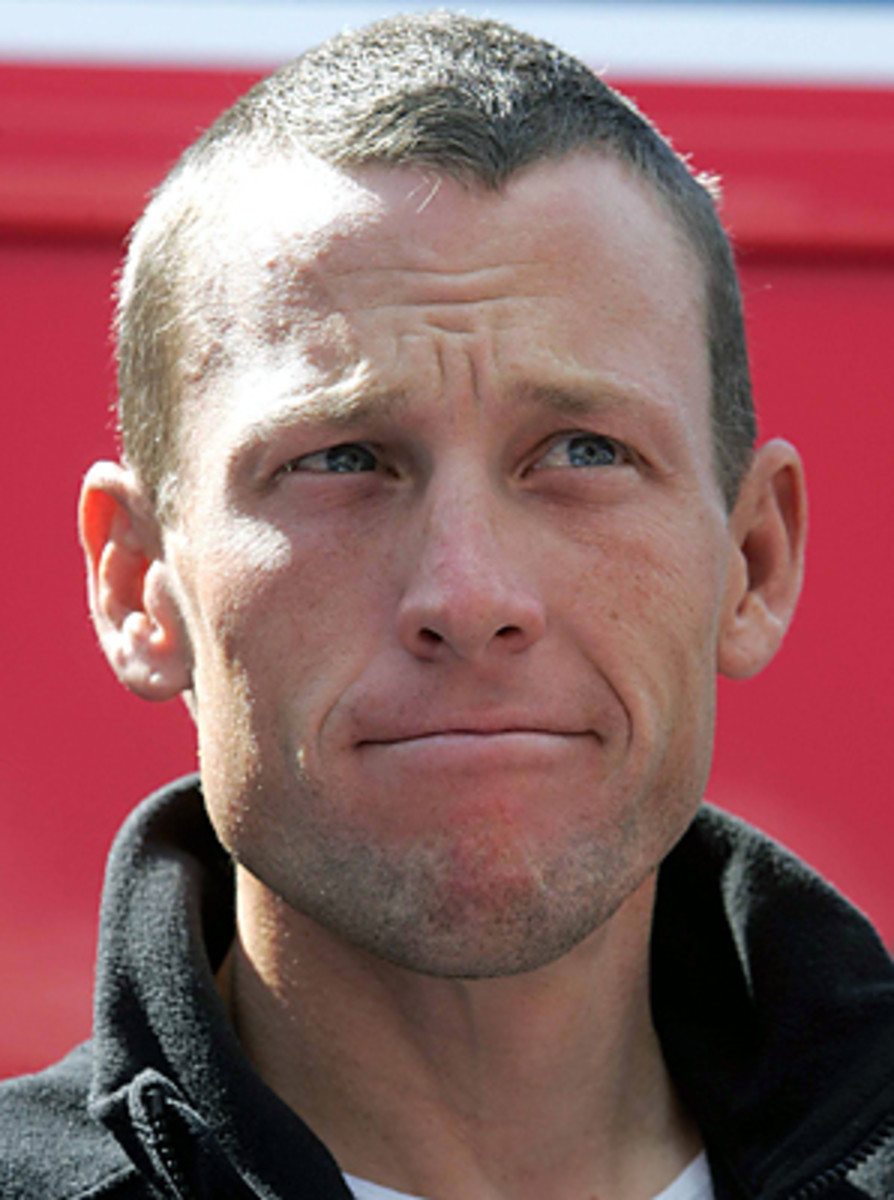Armstrong falls short, but Winfrey shines during interview

Lance Armstrong said he stopped doping in 2005 and denied he doped during the 2009 and 2010 Tour de Frances.
Bernd Thissen/Landov
The most American of acts -- the celebrity television confession -- played out Thursday night on the cable channel OWN as Lance Armstrong asked for mercy in the court of Oprah Winfrey.
It was interesting theater, at least for those who could find the little-watched network, and a night where the interviewer came off far better than her subject.
Winfrey wasted little time in asking Armstrong a series of yes-or-no questions, including whether he had used the blood booster EPO, whether he had used cortisone and HGH, and whether he doped for each of his seven Tour de France victories. He answered "yes," to each of her first five questions and then said he did not believe it would have been possible to win the Tour seven times had he not doped. On the surface, it was curious choice by Winfrey to opt for such closed-ended questions at the start, but it worked. Armstrong's affirmative answers shifted immediate power to Winfrey and she controlled most of the 90-minute interview, even if the former cyclist was often light on the details to queries.
MCCANN: Armstrong confession has far-reaching implications
Armstrong is no hayseed when it comes to interacting with the media. For years, he courted both domestic and international journalists, often attempting to jockey one outlet against another and turning against those reporters whose pieces were critical. He played this game publicly last week-- presetting expectations --when he told the New York Times that "I think Oprah understands the pressure of this interview. She's clever. She's seen people questioning whether she will go deep. I've assured her that I want her to go deep with her questions, and I'm going to answer those questions openly, honestly and with full transparency. And, quite frankly, I'm looking forward to it."
The headlines after the opening admissions? Armstrong said he stopped doping in 2005 and denied he doped during the 2009 and 2010 Tour de Frances. He also denied he pressured teammates to dope and that while the doping setup was "definitely professional" and "definitely smart," he countered charges from the U.S. Anti-Doping Agency that his was "the most sophisticated, professionalized and successful doping program that sport has ever seen."
Winfrey asked open-ended questions on doping ("How were you able to do it? How was it done? How did it all work?") to prompt expanded answers but Armstrong revealed few details about the regimen and those involved in the process. "I'm not confortable talking about other people," Armstrong said. "It's all out there."
The 41-year-old Armstrong, however, did paint a character sketch of at best a flawed man, and at worst, one who lacks remorse. He admitted to being a bully throughout his career ("Yeah, I was a bully. I was a bully in the sense that I tried to control the narrative.") and said he didn't view what he did as cheating. "I didn't view it that way," Armstrong said. "I viewed it as a level playing field.
His answers on Betsy Andreu and Emma O'Reilly -- devoid of empathy and overflowing with arrogance -- will likely haunt him long after the interview. Winfrey failed to press him about his interactions with these two women and she really should have, especially on O'Reilly, the former Postal Service team's masseuse who Armstrong called a prostitute and an alcoholic. "She's one of these people that I have to apologize to," Armstrong said. "She's one of these people who got run over, who got bullied." Winfrey asked about Armstrong taking legal action against O'Reilly and Armstrong replied meekly. "To be honest Oprah we sued so many people ... I'm sure we did." It might have been the most disingenuous moment of the program.
Armstrong then offered a ham-handed attempt at humor when speaking of conversations with Betsy Andreu, the wife of former teammate Frankie Andreu who was among the first to testify to Armstrong's doping. He explained to Winfrey the details of a phone call to her to make amends: "I called you crazy, I called you a bitch, but I never called you fat," Armstrong told Winfrey of the call's dialogue. He then smiled, losing hearts and minds across the globe.
On this note, Armstrong did not address the hospital room confession the Andreus claimed they heard in 1996, when they were visiting him as he fought cancer. Betsy Andreu later in the night on CNN said Armstrong would also not admit to her during a phone call offering apologies. Why did he not admit it? "I heard [the word] legal," Andreu said.
Last week The Sunday Times, which paid Armstrong a settlement fee after he sued the newspaper for libel in 2004, took out an advertisement in The Chicago Tribune that featured David Walsh, The Sunday Times chief sports writer who chased Armstrong the way the peloton once did, suggesting to Winfrey potential questions to ask during the interview. Walsh suggested the devil would be in the details if Armstrong was to show true contrition. "Must be full confession to be taken seriously," Walsh said.
On this night, Armstrong fell well short of full confession. Winfrey's performance was far better than expected given sports and doping are not her terrain, though one imagines a journalist such as Bob Costas or Scott Pelley would have pressed Armstrong harder when he tried to evade.
Regardless, Winfrey ends up as the night's big winner. Her OWN network averages just 329,000 viewers a night and the Armstrong interview was likely seen by millions as far as a worldwide audience. The show offered breaks every 15 minutes and the traditional Winfrey method of highlighting a choice quote in the next segment. As for what's next, Winfrey teased Friday's one-hour conclusion on Armstrong's reactions to losing his sponsors and his relationship with his children and family.





